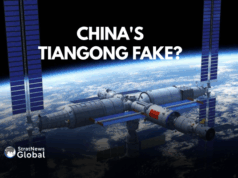NEW DELHI: A second round of nearly 11 hours of negotiations have taken place between 14 Corps Commander Lt General Harinder Singh and his Chinese counterpart Maj General Lin Liu with India seeking of status quo ante in the Finger 4-8 area in Pangong Tso. James Palmer, Foreign Policy Deputy Editor speaks to StratNews Global Associate Editor Amitabh P. Revi on the Chinese negotiating technique of trying to wear down their counterparts. He points out that local commanders have to check back with Beijing at the highest level. He downplayed US reports that General Zhao Zongqi, the head of the Western Theatre Command ordered the Galwan attack. Palmer sees it as, “Perhaps an attempt to alter the line (LAC) by boots on the ground, to push forward and see if India didn’t object strongly enough.”
In his view, the bloodshed and the consequent risk of war may see China dialling back for a while. One sign of that is Beijing downplaying its own casualties, Palmer says, to avoid giving the public a call for action. Tough governments have to bite the bullet and accept a domestic beating for the sake of peace, he adds, saying India has it harder since she can’t control the media. Many underestimate the fact that the PLA has not fought a war since 1979, the journalist says, pointing out that 17-year-old recruits then would have retired by now. A dramatic rise in COVID-19 cases could displace the anger in India and push it down in the news cycle, Palmer feels, giving quiet diplomacy a chance. But, in the current situation, India is likely to align itself a lot more with the U.S. and other middle-powers as a signal to Beijing. He believes a change in current policy is possible only if Xi Jinping falls or goes, giving others a political cover to undergo any rectification.
James Palmer is a deputy editor at Foreign Policy. He lived and worked in Beijing in Chinese state media including the Global Times, China News Service and Foreign Policy from 2003-18. Palmer is the author of The Death of Mao: The Tangshan Earthquake and the Birth of the New China and The Bloody White Baron: The Extraordinary Story of the Russian Nobleman Who Became the Last Khan of Mongolia. He won the Shiva Naipaul prize for travel writing in 2003.
The 'Eye' of the story not the 'I' of the story. That's Amitabh Pashupati Revi's credo from the beginning of his professional journey in 1995. From conflicts in the war zones of Afghanistan, Syria, and Iraq to nuances of international politics in the Maldives,Thailand, and South Sudan, Amitabh has reported from all the world's continents, except for Antarctica(so far). Though, he has documented the world's third pole, the Siachen Glacier!
Amitabh reports and produces documentaries on the two-front China-Pakistan threat to India. His ground reports from Arunachal Pradesh and Ladakh have received viewership in the hundreds of thousands. Amitabh has interviewed world leaders, top global analysts, and experts in India, Russia, the United States, and Australia as well. Along the way, he’s picked up the Russian language, the Ramnath Goenka Award for his reporting on the 'Islamic State' terrorist group in Iraq, the Khaled Alkhateb Award for his reporting from Palmyra, Syria, and the UN Dag Hammarskjöld Distinguished Journalist Fellowship. Last but not least, as a founder member of StratNews Global, Amitabh helps lead the reporting, editorial, production, and administration teams at StratNews Global, BharatShakti, and InterStellar on their journey ahead.




